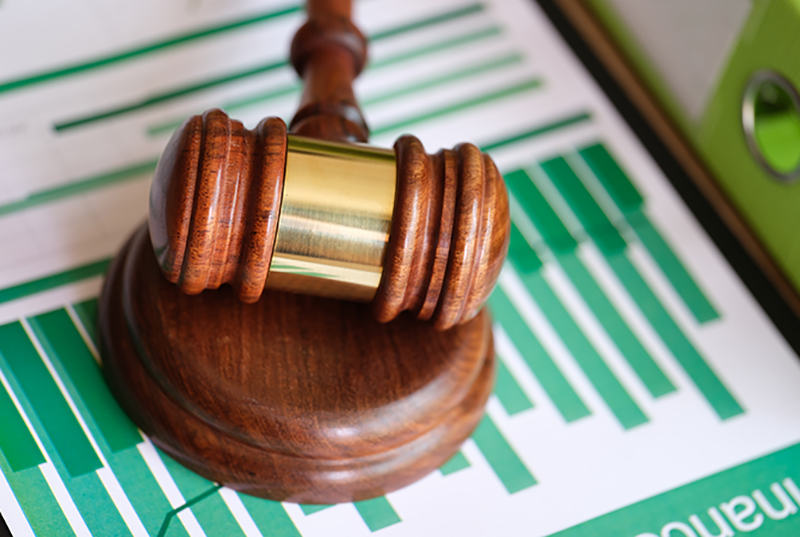Drafting legal documents is a time-consuming task and a challenging one for even experienced attorneys. Law firms utilize the latest technologies and legal transcription services to produce well-structured documents, improve efficiency. and save time and money. Both legal transcription and court reporting involve converting spoken words into text, but there are certain differences between these services.
What Legal Transcriptionists Do
Legal transcription agencies receive audio/video files from their clients. The transcriptionist listens to the recording and transcribes it verbatim, meaning the text will contain the exact same words that were spoken. Transcriptionists work with advanced tools and resources to prepare written, properly-formatted legal documents from video and/or audio recordings. They transcribe a variety of audio and video recordings such as, arbitration proceedings, administrative hearings, 911 calls, correspondence, jury instructions, court proceedings, depositions, interrogations, judgments, legal pleadings, briefs, telephone conversations, conferences, meetings memorandums, wiretaps, the list goes on.
Verbatim legal transcripts of court proceedings or interrogations will include all background noise, non-verbal communication, filler words like uh, um, etc., and also stutters and false starts. Grammatical and other corrections are made only when transcribing correspondence, letters and legal documents such as agreements and contracts.
Legal transcriptionists work in law firms or in outsourcing companies that offer legal transcription support. While transcriptionists don’t require any formal qualifications, they are trained in terminology and legal procedures. Many professionals specialize in a field to provide the best services.
What Court Reporters Do
Court reporters work in the courtroom. Often referred to as stenographers, court reporters must complete a recognized court reporting program to acquire a professional certification. Based on the state in which they practice, court reporters may also require a state license. These highly trained professionals often provide support for government agencies, corporations, and other entities outside the courtroom.
Unlike legal transcription that involves documenting recorded audio/video, court reporting involves transcribing live court hearings. Verbatim court proceedings transcription can be done using conventional stenotype machines or using state-of-the-art recording equipment, which is called digital court reporting.
In digital or electronic court reporting, microphones and video recorders are placed in strategic locations across the courtroom. Digital court reporters take notes during the proceedings, create records with speaker identification and keywords, and also provide litigation support if needed. They must have knowledge and training in operating the digital court recording system and its upkeep.
Court reporters can ensure:
- Realtime capture of the words spoken by everyone during a court or deposition proceeding.
- Accurate and reliable verbatim transcripts of proceedings by experienced court reporters.
- Immediate, realtime access to digital transcript in the court for the benefit of all involved parties — attorneys and judges, including deaf and hard-of-hearing individuals participating in the judicial process.
The recorded audio files created by the electronic court recording system may also be sent to a legal transcription company for conversion to text format. Experienced legal transcriptionists can deliver accurate and timely records of court proceedings at cost-effective rates.
Key Differences Between Legal Transcription and Court Reporting
Let’s sum up the key differences between legal transcription and court reporting:
| Legal Transcription | Court Reporting |
|---|---|
| Performed by transcriptionists well-versed in legal terminology and procedures | Performed by highly trained and certified court reporters |
| Later transcription from audio/video recordings of arbitration proceedings, administrative hearings, 911 calls, correspondence, jury instructions, etc. | Realtime transcription of the words spoken by judges, attorneys and witnesses in a court proceeding realtime |
| Uses a regular keyboard, transcription software and other equipment | Requires use of stenotype machines or using state-of-the-art digital court reporting equipment |
| Involves documenting a wide variety of recorded audio/video content related to legal matters | Involves transcribing live court hearings |
| Creates documents from pre-recorded video or audio files | Provides immediate transcripts of court proceedings |
Investing in professional transcription services can save time and money for busy legal professionals and allows them to focus on the cases they are handling. Experienced legal transcriptionists can provide transcripts with enhancements like speaker identification and timestamps that help attorneys find the information they need quickly. However, hiring a court reporter is essential for real-time transcription of official records of court proceedings. If the transcript of the audio or video recordings are required only later, outsourced legal transcription services are the best option.




